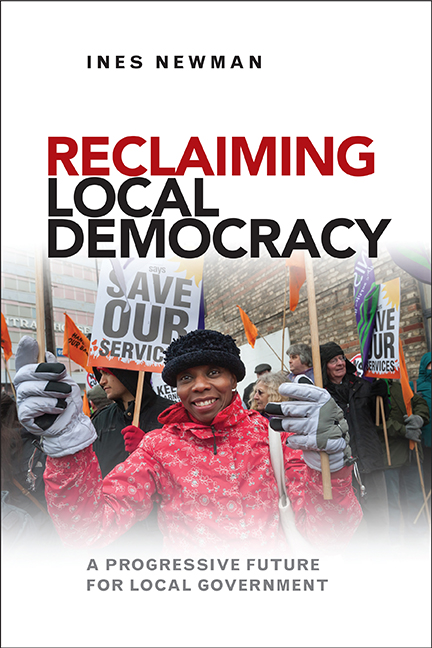Book contents
Summary
The second decade of the 21st century is a period of unprecedented trauma for local government. Austerity programmes have left it struggling to meet the demands for local services. In this context, this book asks how local councillors and officers can make their way through the challenges they face. What are the fundamental principles that should guide decision-making? This work seeks to develop an ethical framework for local government. It argues that unless policymakers have a clear concept of the fundamental purpose of their actions, they will be blown this way and that.
The analysis presented here suggests that current policymaking is dominated by what a number of economists have called ‘market fundamentalism’ (George Soros, 1998; Joseph Stiglitz, 2001, p 518). The result is a confused focus on ‘what works’, the increasing marketisation of public services and a growing lack of trust in representative democracy. The book seeks to move the agenda from ‘What works?’ to ‘What should an ethical local government do?’ and ‘How will its policies impact on social justice and democracy in the area?’.
The approach fundamentally rejects the relativist conception that everyone has a different moral stance, so nothing can be said about what local government should do. The investigation seeks to provide an overall framework. It asks how an understanding of universal basic needs can be used to develop an obligation on local government to meet needs for existing and future generations. It argues that if local authorities have the power to remedy an injustice, there are compelling arguments for them to do just that. And the case is made that it is not just what local government does that matters, but also how decisions are made. People's lives are enhanced by taking part in the democratic process and by being active citizens.
These are important issues of values and principles. The book is unashamedly focused on local government. But it does not deal with the dry, familiar debate about what structures and powers local government should have. It seeks to move beyond these debates and to energise all concerned to re-engage with a political and ethical approach. It asks how local government can promote social justice, how it can develop active citizens and how it can make a difference to the well-being of those in different places.
- Type
- Chapter
- Information
- Reclaiming Local DemocracyA Progressive Future for Local Government, pp. 1 - 6Publisher: Bristol University PressPrint publication year: 2014

